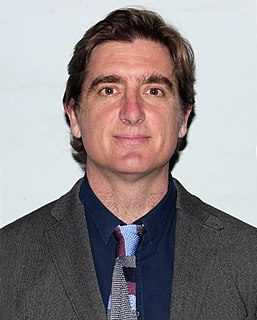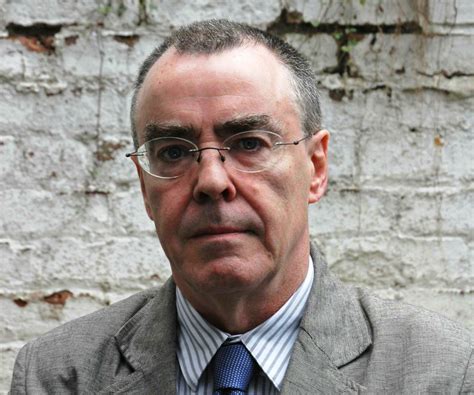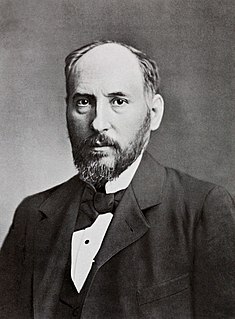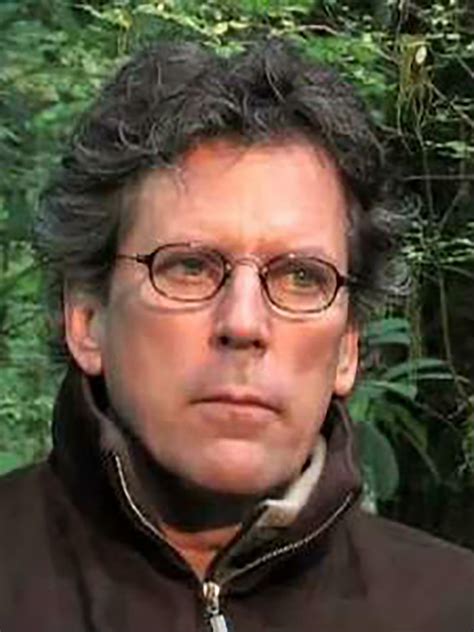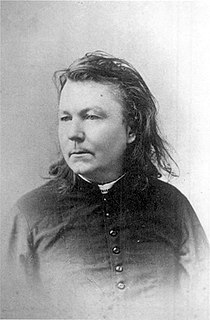Top 525 Ruins Quotes & Sayings - Page 9
Explore popular Ruins quotes.
Last updated on April 15, 2025.
You see these dictators up on their pedestals, surrounded by the bayonets of their soldiers and the truncheons of their police. They're afraid of words and thought. ... They make frantic efforts to bar our thoughts and words. ... A state of society where men may not speak their mind - where children denounce their parents to the police - where a businessman or small shopkeeper ruins his competitor by telling tales about his private opinion. Such a state of society cannot long endure if it is continually in contact with the healthy outside world.
The religion of art, like the religion of politics, was born from the ruins of Christianity. Art inherited from the old religion the power of consecrating things and endowing them with a sort of eternity; museums are our temples, and the objects displayed in them are beyond history. Politics--or more precisely, Revolution--co-opted the other function of religion: changing human beings and society. Art was an asceticism, a spiritual heroism; Revolution was the construction of a universal church.
If we consider the actual basis of this information [i.e., intelligence], how unreliable and transient it is, we soon realize that war is a flimsy structure that can easily collapse and bury us in its ruins. ... Many intelligence reports in war are contradictory; even more are false, and most are uncertain. This is true of all intelligence but even more so in the heat of battle, where such reports tend to contradict and cancel each other out. In short, most intelligence is false, and the effect of fear is to multiply lies and inaccuracies.
Remember your contemporaries who have passed away and were your age. Remember the honors and fame they earned, the high posts they held, and the beautiful bodies they possessed. Today all of them are turned to dust. They have left orphans and widows behind them, their wealth is being wasted, and their houses turned into ruins.
No sign of them is left today, and they lie in dark holes underneath the earth.
Picture their faces before your mind's eye and ponder.
And now, what has Anarchism to say to all this, this bankruptcy of republicanism, this modern empire that has grown up on the ruins of our early freedom? We say this, that the sin our fathers sinned was that they did not trust liberty wholly. They thought it possible to compromise between liberty and government, believing the latter to be 'a necessary evil,' and the moment the compromise was made, the whole misbegotten monster of our present tyranny began to grow. Instruments which are set up to safeguard rights become the very whip with which the free are struck.
It was a very aged, ghostly place; the church had been built many hundreds of years ago, and had once had a convent or monastery attached; for arches in ruins, remains of oriel windows, and fragments of blackened walls, were yet standing-, while other portions of the old building, which had crumbled away and fallen down, were mingled with the churchyard earth and overgrown with grass, as if they too claimed a burying-place and sought to mix their ashes with the dust of men.
One whose soul does not wander in the expanses, one who does not seek the light of truth and goodness with all his heart, does not suffer spiritual ruins - but he will also not have his own self-based constructions. Instead, he takes shelter in the shadow of the natural constructions, like rabbits under boulders. But one who has a human soul cannot take shelter in anything other than constructions that he builds with his own spiritual toil.
Then take me disappearin' through the smoke rings of my mind, Down the foggy ruins of time, far past the frozen leaves, The haunted, frightened trees, out to the windy beach, Far from the twisted reach of crazy sorrow. Yes, to dance beneath the diamond sky with one hand waving free, Silhouetted by the sea, circled by the circus sands, With all memory and fate driven deep beneath the waves, Let me forget about today until tomorrow.
In 2009, pre-Hillary, ISIS was not even on the map, Libya was stable, Egypt was peaceful, Iraq was seeing really a big, big reduction in violence, Iran was being choked by sanctions, Syria was somewhat under control. After four years of Hillary Clinton, what do we have? ISIS has spread across the region and the entire world. Libya is in ruins and our ambassador and his staff were left helpless to die at the hands of savage killers. Egypt was turned over to the radical Muslim Brotherhood, forcing the military to retake control. Iraq is in chaos. Iran is on the path to nuclear weapons.
There is nothing in either savage or civilized history that is more utterly complete, more remorselessly sweeping than the Father of Mercy´s campaign among the Midianites. The official report deals only in masses, all the virgins, all the men, all the babies. all ´creatures that breathe,´ all houses. all cities. It gives you just one vast picture ...as far as the eye can reach, of charred ruins and storm-swept desolation... Would you expect this same conscienceless God, this moral bankrupt, to become a teacher of morals, of gentleness, of meekness, of righteousness, of purity?
[Eugene] O'Neill made a living, certainly, at least. But each of these forms have sort of died the death in turn, and it's a simple fact of that universe that talent then migrates away from these forms, and then the amateurs get in, like lunatics in the ruins, sort of pretending to be artists. If you're ambitious enough to want to be a writer to begin with, you want to be a writer in some circumstances where there are rewards, where there's notice, where you don't have to be a teacher, and where you're frankly not nuts for wasting your time.
Blood Dazzler is Patricia Smith's impassioned lyric chronicle of a beloved city in peril, a city whose people were left to die before us all, a people who were the heart of our country and lifeblood of our culture. After rising water, winds and abandonment, after our failure and neglect, comes this symphony of utterance from the ruins: many-voiced, poignant, sorrowful and fierce. This is poetry taking the full measure of its task.
Standing on the bridge, looking across at that empty city, everything in the compass of my gaze had been set there by a human hand. Somehow those pylons had been strung with wire, and those towers raised, and roofs tiled. There had been food and drink for millions of mouths. I don't cry easy, but my vision blurred as I stared on the ruins of what we had been, and I watched the small band of men in rags move toward it to pick at it like birds on the carcass of some giant.
In an all-out nuclear war, more destructive power than in all of World War II would be unleashed every second during the long afternoon it would take for all the missiles and bombs to fall. A World War II every second-more people killed in the first few hours than all the wars of history put together. The survivors, if any, would live in despair amid the poisoned ruins of a civilization that had committed suicide.
Every woman whether rich or poor, married or single, has a circle of influence within which, according to her character, she is exerting a certain amount of power for good or harm. Every woman, by her virtue or her vice, by her folly or her wisdom, by her levity or her dignity, is adding something to our national elevation or degradation. A community is not likely to be overthrown where woman fulfills her mission, for by the power of her noble heart over the hearts of others, she will raise that community from its ruins and restore it again to prosperity and joy.
Perhaps it's true that things can change in a day. That a few dozen hours can affect the outcome of whole lifetimes. And that when they do, those few dozen hours, like the salvaged remains of a burned house---the charred clock, the singed photograph, the scorched furniture---must be resurrected from the ruins and examined. Preserved. Accounted for. Little events, ordinary things, smashed and reconstitutred. Imbued with new meaning. Suddenly they become the bleached bones of a story.
Idea for a short story. The shore of a lake, a young girl who's spent her whole life beside it, a girl like you She loves the lake the way a seagull does, and she's happy and free as a seagull. Then a man comes along, sees her, and ruins her life because he has nothing better to do. Destroys her like this seagull here.
The cash register did more for human morality than the Congregational Church. It was a really powerful phenomenon to make an economic system work better, just as, in reverse, a system that can be easily defrauded ruins a civilization. A system that's very hard to defraud, like a cash register, helped the economic performance of a civilization by reducing vice, but very few people within economics talk about it in those terms.
I am reminded, now, of Leonardo's advice to painters: You should fix your eyes, he says, on certain walls stained with damp. You will see in these the likenesses of divine landscapes, adorned with mountains, ruins, rocks, extensive plains; and you will see there battles and strange figures engaged in violent actions. For in such walls the same thing happens as in the sound of church bells, in whose reverberations you may find every word imaginable.
Heroes and scholars represent the opposite extremes... The scholar struggles for the benefit of all humanity, sometimes to reduce physical effort, sometimes to reduce pain, and sometimes to postpone death, or at least render it more bearable. In contrast, the patriot sacrifices a rather substantial part of humanity for the sake of his own prestige. His statue is always erected on a pedestal of ruins and corpses... In contrast, all humanity crowns a scholar, love forms the pedestal of his statues, and his triumphs defy the desecration of time and the judgment of history.
God knows we have our own demons to be cast out, our own uncleanness to be cleansed. Neurotic anxiety happens to be my own particular demon, a floating sense of doom that has ruined many of what could have been, should have been, the happiest days of my life, and more than a few times in my life I have been raised from such ruins, which is another way of saying that more than a few times in my life I have been raised from death - death of the spirit anyway, death of the heart - by the healing power that Jesus calls us both to heal with and to be healed by.
The life of grace is not an effort on our part to achieve a goal we set ourselves. It is a continually renewed attempt simply to believe that someone else has done all the achieving that is needed and to live in relationship with that person, whether we achieve or not. If that doesn't seem like much to you, you're right: it isn't. And, as a matter of fact, the life of grace is even less than that. It's not even our life at all, but the life of that Someone Else rising like a tide in the ruins of our death.
She is all I could ever ask for, she is perfect, and right now, with those big, green eyes and pillowy lips and alabaster thighs, the idea of doing this for the rest of our lives doesn’t seem all that daunting. She’s the last reprieve. The stay of execution. She gives me hope. But times are tough for dreamers. And even if my dream is a simple one—all I want is for Her to be in love with me forever—I know it’s still a long shot. Life ruins everything.
The ascendancy over men's minds of the ruins of the stupendous past, the past of history, legend and myth, at once factual and fantastic, stretching back and back into ages that can but be surmised, is half-mystical in basis. The intoxication, at once so heady and so devout, is not the romantic melancholy engendered by broken towers and mouldered stones; it is the soaring of the imagination into the high empyrean where huge episodes are tangled with myths and dreams; it is the stunning impact of world history on its amazed heirs.
[Man] ... his origin, his growth, his hopes and fears, his loves and his beliefs are but the outcome of accidental collocations of atoms; that no fire, no heroism, no intensity of thought and feeling can preserve an individual life beyond the grave; that all the labour of the ages, all the devotion, all the inspiration, all the noonday brightness of human genius are destined to extinction in the vast death of the solar system, and that the whole temple of Man's achievement must inevitably be buried beneath the debris of a universe in ruins.
Loretta, I love you. Not like they told you love is, and I didn't know this either, but love don't make things nice - it ruins everything. It breaks your heart. It makes things a mess. We aren't here to make things perfect. The snowflakes are perfect. The stars are perfect. Not us. Not us! We are here to ruin ourselves and to break our hearts and love the wrong people and *die*. The storybooks are *bullshit*. Now I want you to come upstairs with me and *get* in my bed!
There are many things worth telling that are not quite narrative. And eternity itself possesses no beginning, middle or end. Fossils, arrowheads, castle ruins, empty crosses: from the Parthenon to the Bo Tree to a grown man's or woman's old stuffed bear, what moves us about many objects is not what remains but what has vanished. There comes a time, thanks to rivers, when a few beautiful old teeth are all that remain of the two-hundred-foot spires of life we call trees. There comes a river, whose current is time, that does a similar sculpting in the mind.
Art schools are partly the villain here. (Never mind that I teach in them.) This generation of artists is the first to have been so widely credentialed, and its young members so fetishize the work beloved by their teachers that their work ceases to talk about anything else. Instead of enlarging our view of being human, it contains safe rehashing of received ideas about received ideas. This is a melancholy romance with artistic ruins, homesickness for a bygone era. This yearning may be earnest, but it stunts their work, and by turn the broader culture.
Tally sighed, tipping her feet again to follow. "Maybe that's because they have better stuff to do than kid tricks. Maybe partying in town is better than hanging out in a bunch of old ruins." Shay's eyes flashed. "Or maybe when they do the operation-when they grind and stretch your bones to the right shape, peel off your face and rub all your skin away, and stick in plastic cheekbones so you look like everyone else-maybe after going through all that you just aren't very interesting anymore.
When we see the many grave-stones which have fallen in, which have been defaced by the footsteps of the congregation, which lie buried under the ruins of the churches, that have themselves crumbled together over them; we may fancy the life after death to be as a second life, into which man enters in the figure, or the picture or the inscription, and lives longer there than when he was really alive. But this figure also, this second existence, dies out too, sooner or later. Time will not allow himself to be cheated of his rights with the monuments of men or with themselves.
I have love in my life, a soul mate u2014u00a0absolutely. When someone asked me why Angie and I don't get married, I replied, 'Maybe we'll get married when it's legal for everyone else.' I stand by that, although I took a lot of flak for saying it u2014u00a0hate mail from religious groups. I believe everyone should have the same rights. They say gay marriage ruins families and hurts kids. Well, I've had the privilege of seeing my gay friends being parents and watching their kids grow up in a loving environment.
Perhaps the heroic element in our natures is exhibited to the best advantage, not in going from success to success, and so on through a series of triumphs, but in gathering, on the very field of defeat itself, the materials for renewed efforts, and in proceeding, with no abatement of heart or energy, to form fresh designs upon the very ruins and ashes of blasted hopes. Yes, it is this indomitable persistence in a purpose, continued alike through defeat and success, that makes, more than aught else, the hero.
In Rome, I really wanted an Audrey Hepburn Roman Holiday experience, but the Trevi Fountain was crowded, there was a McDonald's at the base of the Spanish Steps, and the ruins smelled like cat pee because of all the strays. The same thing happened in Prague, where I'd been yearning for some of the bohemianism of The Unbearable Lightness of Being. But no, there were no fabulous artists, no guys who looked remotely like a young Daniel Day-Lewis. I saw this one mysterious-looking guy reading Sartre in a cafe, but then his cell phone rang and he started talking in aloud Texan twang.
...the first thing you do at the end is reflect on the beginning. Maybe it's some form of reverse closure, or just the basic human impulse toward sentimentality, or masochism, but as you stand there shell-shocked in the charred ruins of your life, your mind will invariably go back to the time when it all started. And even if you didn't fall in love in the eighties, in your mind it will fee like the eighties, all innocent and airbrushed, with bright colors and shoulder pads and Pat Benatar or The Cure on the soundtrack.
No sovereign, no court, no personal loyalty, no aristocracy, no church, no clergy, no army, no diplomatic service, no country gentlemen, no palaces, no castles, nor manors, nor old country-houses, nor parsonages, nor thatched cottages nor ivied ruins no cathedrals, nor abbeys, nor little Norman churches no great Universities nor public schools -- no Oxford, nor Eton, nor Harrow no literature, no novels, no museums, no pictures, no political society, no sporting class -- no Epsom nor Ascot Some such list as that might be drawn up of the absent things in American life.
Anarchy wears two faces, both Creator and Destroyer. Thus Destroyers topple empires; make a canvas of clean rubble where creators can then build a better world. Rubble, once achieved makes further ruins' means irrelevant. Away with our explosives, then! Away with our Destroyers! They have no place within our better world. But let us raise a toast to all our bombers, all our bastards, most unlovely and most unforgivable, let's drink their health, then meet with them no more.
You could hear the wind in the leaves, and on that wind traveled the screams of the kids on the playground in the distance, the little kids figuring out how to be alive, how to navigate a world that was not built for them by navigating a playground that was. . . Who am I to say that these things might not be forever? Who is Pete Van Houten to assert as fact the conjecture that our labor is temporary? All I know of heaven and all I know of death is in this park: an elegant universe in ceaseless motion, teeming with ruined ruins and screaming children.
Love of colors bewilders the eye and it fails to see right. Love of harmonies bewitches the ear, and it loses its true hearing. Love of perfumes fills the head with dizziness. Love of flavors ruins the taste. Desires unsettle the heart until the original nature runs amok. These five are enemies of true life. Yet these are what men of discernment claim to live for. They are not what I live for. If this is life, then pigeons in a cage have found happiness!
Natural causes, as we know, are at work, which tend to modify, if they do not at length destroy, all the arrangements and dimensions of the earth and the whole solar system. But though in the course of ages catastrophes have occurred and may yet occur in the heavens, though ancient systems may be dissolved and new systems evolved out of their ruins, the molecules [i.e. atoms] out of which these systems are built-the foundation stones of the material universe-remain unbroken and unworn.? They continue to this day as they were created-perfect in number and measure and weight.
Roger stooped, picked up a stone, aimed and threw it at Henry-threw it to miss. The stone, that token of preposterous time, bounced five yards to Henry's right and fell in the water. Roger gathered a handful of stones and began to throw them. Yet there was a space round Henry, perhaps six yards in diameter, into which he dare not throw. Here, invisible yet strong, was the taboo of the old life. Round the squatting child was the protection of parents and school and policemen and the law. Roger was conditioned by a civilization that knew nothing of him and was in ruins.
Whatever withdraws us from the power of our senses; whatever makes the past, the distant, or the future, predominate over the present, advances us in the dignity of thinking beings. Far from me, and far from my friends be such frigid philosophy as may conduct us indifferent and unmoved over any ground which has been dignified by wisdom, bravery, or virtue. That man is little to be envied whose patriotism would not gain force upon the plain of Marathon, or whose piety would not grow warmer among the ruins of Ionia.
In the firm expectation that when London shall be a habitation of bitterns, when St. Paul and Westminster Abbey shall stand shapeless and nameless ruins in the midst of an unpeopled marsh, when the piers of Waterloo Bridge shall become the nuclei of islets of reeds and osiers, and cast the jagged shadows of their broken arches on the solitary stream, some Transatlantic commentator will be weighing in the scales of some new and now unimagined system of criticism the respective merits of the Bells and the Fudges and their historians.
You should look at certain walls stained with damp, or at stones of uneven color. If you have to invent some backgrounds you will be able to see in these the likeness of divine landscapes, adorned with mountains, ruins, rocks, woods, great plains, hills and valleys in great variety; and expressions of faces and clothes and an infinity of things which you will be able to reduce to their complete and proper forms. In such walls the same thing happens as in the sound of bells, in whose stroke you may find every named word which you can imagine.












